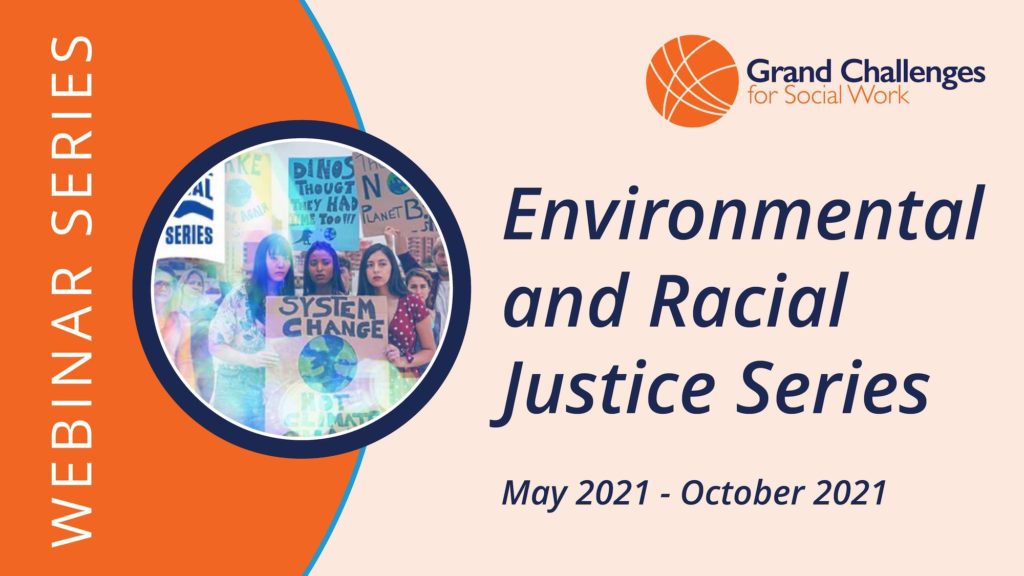
Environmental racism is a lived experience for many communities of color, every day, in the U.S. and globally. Pollution, land loss, food and water insecurity, weather extremes connected to climate change, and other environmental problems unfairly and disproportionately impact Black, Indigenous, Latinx, Asian, Pacific Islander, and other racially minoritized communities. In this 3-part series—co-sponsored with the Grand Challenge to Create Social Responses to a Changing Environment—we explored community practice and partnership, social work education, and policy changes needed at the nexus of environmental and racial justice, in pursuit of a healthy and thriving world for all.
Watch recordings of each session here: Disrupting Environmental Racism, Transforming Social Work Education, Mobilizing Power for Action and Change.
